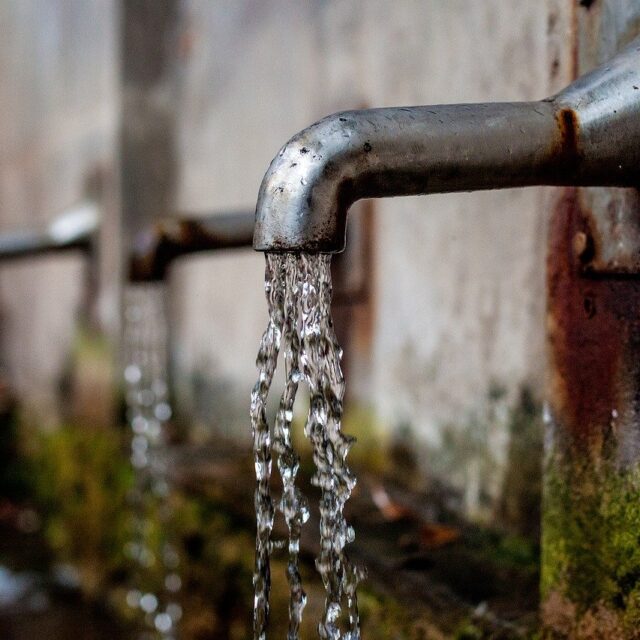Drinking water treatment by ultraviolet: case of the city of Mulhouse
Since 2015, the city of Mulhouse, in Alsace, has begun a process aimed at putting an end to the chlorination treatment of its drinking water distributed in 13 municipalities in favor of a more eco-responsible and less odorous solution: ultraviolet light.
After a conclusive test on a first well in 2016, BIO-UV Group has equipped all 8 of the city’s catchment wells with an ultraviolet water treatment system, marking the end of chlorination for the 200,000 consumers! Review and assessment of this installation which ensures a preventive treatment of drinking water.
Mulhouse wants to guarantee water quality and stop chlorination

Historically, Mulhouse’s water, coming from the Doller water table, did not require any treatment. However, the appearance of a small amount of bacterial pollution led the city to set up a systematic and continuous chlorination system. In 2016, anxious to offer quality water to its inhabitants, by improving its taste, optimizing the bactericidal efficiency while reducing the olfactory nuisances associated with chlorine, the city launched a call for tenders to find an alternative solution. A request that was part of the precautionary logic closely followed by the Regional Health Agency and the Haut-Rhin Prefecture, which largely supported the project. She then decided to turn to ultraviolet treatment, a solution that is chemical-free, odorless and does not alter the taste of the water!
Ultraviolet light, a more efficient and economical alternative to chlorine!
Although it is one of the most widely used disinfectants in France, chlorine is likely to form undesirable by-products in the presence of organic matter, which can cause health risks (trihalomethanes and haloacetic acids for example). In addition, chlorine is not very effective on certain parasites such as Cryptosporidium oocysts.
Associated with water treatment, ultraviolet light has an immediate bactericidal and virucidal action, i.e. it eradicates all bacteria and viruses present in the water by destroying their DNA. Ultraviolet radiation offers the advantage of acting directly on bacteria known as protozoa, where chlorine must be delivered in very large quantities to exterminate them.
UV disinfection thus guarantees optimal water quality to meet the most stringent requirements for the treatment of water intended for human consumption.
“This UV treatment is preventive and not chemical ”
Denis Parmentier, Director of the Water Department and Michelbach Dam Site Manager
Mulhouse chooses BIO-UV Group to treat its drinking water

The ultraviolet water treatment system offered by Bio-UV Group, the WWW system, has won over the city of Mulhouse to equip all of the city’s catchment wells.
The DW range is ACS UV approved and ÖNORM certified. Associated with a well, its principle is very simple. Indeed, the pumped water is automatically injected into the UV system (a steel tube containing ten quartz UV lamps) before being returned to the distribution network.
The treatment is preventive because the raw water is treated and disinfected continuously, whether or not bacteria are present in the water, unlike a curative treatment which is only implemented in the event of a bacteriological quality problem.
Installation of UV treatment devices on all the catchment wells
This study required significant work to equip the first underground well, which had little room to integrate the desired system. Taking into account these constraints, BIO-UV equipped this well with medium pressure lamps, more energy consuming but less cumbersome than low pressure lamps.
“The study on the first well proved successful. Subsequently, the city studied the construction of buildings on the surface of each well, capable of housing reactors with low-pressure lights, in an effort to save energy”
Alain NGuyen, technical sales engineer at BIO-UV Group
Following its success, eight wells were equipped in 2019 with devices with low pressure lamps, requiring two days of work. A beautiful project subject to the agreement of the Regional Health Agency and a hydrogeologist responsible for drafting the measures to be implemented during the work.
A successful transition to UV for Mulhouse
The BIO-UV facilities were commissioned in early 2019 with no observed operational, performance or treatment failures.
The BIO-UV Group reactors are controlled by the flow rate of the production wells. The percentage of radiation as well as the status reports are directly transmitted to the city’s water department, ensuring the control of the reactors’ operation. Water quality monitoring is carried out by a company commissioned by the municipality. The city’s technical staff also performs a weekly visual inspection of all the sites to check for hydraulic leaks, vibrations or problems that cannot be detected remotely.
Since then, the distributed water is no longer chlorinated at all. The chlorine dioxide system has been shut down. Nevertheless, to prevent any risk of bacterial contamination in the network, the chlorine injection stations have been kept in order to be active in case of pollution in the network in curative mode. To date, the city of Mulhouse has not resorted to emergency treatment by chlorine injection.
“Our 8 wells and the entire Mulhouse water network have been the object of every attention since their creation. This project had a maximum degree of vigilance, planning and extreme monitoring to achieve the completion of this work, emphasizes Bernard Roche, Engineer and Head of the Bureau d’Etudes Eaux et Travaux of the city of Mulhouse. We are very satisfied to be able to offer quality and odor-free water to the inhabitants of our city. The BIO-UV Group teams have been very attentive to our needs in this project and have accompanied us to the end ”
For BIO-UV Group, the ultraviolet water treatment installed in Mulhouse is therefore a disinfection solution that provides a balance between ecology, economy and environmental preservation. Our technology has already been implemented in many cities to equip drinking water networks and have already proven themselves: in Sète in 2007 or in Chambéry in 2018 to name but a few examples.
